#The White Feather
Explore tagged Tumblr posts
Text
About a decade ago, I read The White Feather and found myself relating a lot to its protagonist, R. D. Sheen. Shy, lacking confidence, unable to handle confrontation, more studious than athletic, and getting lectured by everyone about how you Just Need To Stop Being Like That.
Now, after a lot of personal changes and a year and a half of therapy, I reread the book for the first time in quite a while (ever since the Nightmare Class, reading PGW is not the joy it used to be, so I haven't engaged much with his works in years). And I still found myself understanding Sheen, but now also deeply frustrated that almost no one is really helping him with a problem that is not of his own making but the product of a toxic culture that the narrative seems to accept without question.
And there's no intentional malice in what Wodehouse is depicting. It's clear that he--at least at the time when he wrote this book, in his mid-twenties--too was steeped in this culture and never thought to question it. It was the way of the world. It was what society expected of men. It was an absolutely disastrous mindset, as history shows us.
Wodehouse's school stories tend to take a light-hearted view of the British public school experience, and in general that is their strength. But The White Feather differs from the others in that it depicts a darker side of such schools--and perhaps the most messed-up thing about it is that the narrative doesn't fully realize how mesed up it truly is.
We’re introduced to our protagonist—no, we aren’t. Not right away. Sheen isn’t even mentioned in the entire first chapter, which is a conversation between three characters who barely appear at all for the rest of the story, discussing the abysmal state of Wrykyn’s football (rugby) team. This ties this story with the first novel set at Wrykyn, The Gold Bat, whose protagonists are among the people talking here, but for a reader coming to this book with no knowledge of earlier stories, it’s a bit jarring, and one might be tempted to skip this chapter altogether. But its presence indicates the narrative’s priorities. We are not primarily here to concentrate on an individual alone; we must constantly bear in mind that the honor of the school is in potential crisis as long as its athletic record this year is less than stellar. It establishes the nature of the setting. School before all else. Reputation and superiority before all else. Athletics before all else. These are the kind of boys (and men, a teacher appears too) that populate this all-male environment, and this is what they value.
Then, and only then, can we meet Sheen and see how badly he fails to live up to the school culture’s ideal. This utter disgrace of an excuse for a human being has committed numerous crimes, including preferring to stay indoors, being a loner with almost no friends, shunning athletics (except fives, a form of handball, which apparently isn’t athletic enough), concentrating on studies as he prepares for an examination to earn a scholarship, and being afraid of giving offense to the point that he cannot handle confrontation at all. The narrative is sympathetic enough to Sheen, in a pitying sort of way, but it’s made clear that he has problems that need to be addressed. And that’s true enough. Sheen needs self-confidence. He needs to learn how to better manage his social anxiety and handle conflict so that others won’t walk all over him as they tend to.
An important thing that we don’t learn is exactly why Sheen is this way. We know next to nothing about his home life. We don’t even know his given name, the name that would only be used by family and perhaps the closest friends. We find out that he has a dog at home, and there’s a reference that suggests that he might have a sister, but we know nothing about his parents. We don’t even know if he has parents. He is never seen writing to his family, not even when the entire school quits speaking to him. He is never seen thinking or worrying about what his parents might think of him or his school performance. We might be able to infer something from his asking Jack Bruce, “Doesn’t your father mind your motoring?”–as if he expects a father to be the sort of person who disapproves of one’s hobbies and interests. Whatever the case may be, Sheen’s behavior cannot have come out of nowhere. It points to a likelihood that he was raised in an environment where his guardians were authoritarian, expected complete subjection, and valued children being seen and not heard—to an extent even greater than the typical late Victorian / Edwardian family. Sheen has evidently learned from a young age that the best way to survive is to comply, lie low, and not venture too far into anything unfamiliar and potentially dangerous.
This boy certainly has my sympathy. He does not have my contempt. These are not behaviors that one consciously chooses to adopt out of some kind of moral failing. But the narrative, by leaving out whatever story explains why Sheen is the way he is, seems to imply that it is his fault that he falls short of the schoolboy ideal, and the kind of people who surround him reinforce this perspective. Sheen has had only a few friendships, all of which have been basically transactional. Stanning only wants Sheen around when he needs someone to play the piano at forbidden house parties off-campus—having a musician on hand was quite a commodity in the days before radios and music streaming services etc. And then there’s Drummond, who views Sheen as both a mystery and basically a project. Sheen chooses to develop this friendship because he sees in Drummond what he himself wishes to be and hopes that whatever Drummond has will rub off on him. Neither of these relationships are built on genuine camaraderie, trust, care for each other, etc., and it’s clear that they’re doing Sheen more harm than good. Stanning invades Sheen’s study to taunt his studiousness, call him a "worm" for staying in, call him “flabby as a dough-nut” for not playing sports, and then try to convince him to come to another house party. Sheen does not want to do this again after a previous bad experience, but Stanning embarrasses him into admitting that he doesn’t want to go because he’s afraid. The narrative understands that Stanning is a jerk and a horrible “friend,” but when Drummond, whom we’re supposed to see as the more admirable person, enters, he basically does the same thing.
Drummond chases off a couple of boys who have decided to get themselves a free tea by showing up to Sheen’s study and acting like they were invited, taking advantage of his reluctance to stand up for himself. He lectures Sheen about the importance of looking out for himself lest others walk all over him. “It’s for your own good,” he declares. “And it’s really pure slackness that’s the cause of it all.” Sheen tries to counter that he hates hurting people’s feelings, and Drummond dismisses this by claiming that no one at the school has any feelings. He then leaves to run off a younger student who has the audacity to use the bathtub when Drummond wants it—and pokes his head back in to Sheen’s study to brag about how his system of assuming that no one at the school, especially not younger students, has feelings is so much superior to how Sheen would have handled it.
This is not the behavior of a friend. He is not encouraging Sheen to improve himself; he is using his disdain for Sheen’s timidity to feel better about himself. Yes, Sheen does need to develop a backbone. But what has this boy done to deserve the hatefulness with which everyone around him treats him?
The inciting incident comes when there’s an ongoing fight in the neighboring town between Wrykyn boys and some local youths, kind of about politics but mostly about having an excuse for violence. Drummond and Sheen happen to be out during one of these confrontations. The expectation is to just join in with their schoolmates. Drummond eagerly leaps in. Sheen panics and questions the advisability of fighting. And then he walks away as fast as he can. Back in his study, he tries to argue with himself that he did the right thing—he’s in the sixth form and the headmaster disapproves of such behavior from the older boys, there’s no reason for him to get involved in a fight not his own, he wasn’t a coward but rather kept his head better than Drummond!
And the thing is…he’s right. The fight with the town boys was stupid and pointless. He was the only schoolboy there with any sense for getting out. He didn’t know what the fight was really about. He had no personal stakes in it. He was not in any immediate danger or protecting anyone in danger. There is absolutely zero rational reason for him to get involved. He has done nothing wrong.
But the narrative and Sheen’s conscience, steeped in schoolboy culture, don’t see it that way. Sheen is filled with shame as he realizes that “He had been afraid, and had shown it. And he had shown it when, in a sense, he was representing the school, when Wrykyn looked to him to help it keep its end up against the town.” And thus “He had disgraced himself. He had disgraced Seymour’s. He had disgraced the school. He was an outcast.” The priority, according to these values, is reputation and a sense of honor that depends on proving superiority at all costs. Ethics don’t matter. Reason doesn’t matter. Schoolboys are put on this earth to make their house, their school, whatever group they’re part of, be the best, which can only be proven by winning. The point and purpose of a conflict doesn’t matter, as long as one participates and preferably emerges victorious. And woe to anyone who does not conform.
This is a typical mindset of that culture at that time. You could even argue that it led to World War I (which is where all these boys are headed anyway in another seven years). It is clearly destructive. And in this story, we are seeing how destructive it is on a much smaller scale. Sheen is beating himself for making a completely normal and sensible choice. And when Stanning spreads the word, the whole school is outraged, viewing Sheen’s walking out as a moral failing on his part and—even worse!—the part of his house. Everyone is incredibly invested in what this overlooked loner does and does not do all of a sudden. No one questions the outright lies that Stanning elaborates the story with. Younger students call names and throw things at Sheen’s study door, and the older students—“the senior day-room,” a sort of all-powerful student council that can go so far as to “court-martial” anyone who strays from the unspoken rules—decide to “cut him dead,” that is, refuse to speak to him or acknowledge his existence. When Sheen tries to visit Drummond to talk over what happened, Drummond orders him to get out, and the friendship ends there. We’re supposed to see Drummond as a good guy for not ratting Sheen out and shushing the boys of their dormitory who are harassing Sheen. But that’s the bare minimum of decency. The refusal to interact with him is not the behavior of a true friend.
But there is one person who is a friend to Sheen even when no one else will be: Jack Bruce. Bruce, as a day boy (not a boarder) on the Engineering side of the school (most of the boys are on the Classics side), is somewhat socially detached from the rest of the school and rejects the popularity that he could have on the grounds of his father’s importance as a prominent local politician. Like Sheen, he’s a loner who’s quiet by nature. He shows up in the music room to listen to Sheen practicing piano, asks to hear a particular piece again, and thanks him. This is the first time anyone has shown Sheen any appreciation, and it leaves an impact, especially in the midst of being ostracized.
Nevertheless, Sheen believes that he needs to somehow restore his honor, and the only way to restore honor is to fight. He goes to town hoping for another skirmish to throw himself into. Instead, he meets Joe Bevan, who involves himself in a fight not for glory but to defend Sheen, who is struggling to hit a town boy. And instead of berating Sheen, Bevan offers him some friendly advice on fighting technique that includes multiple Shakespeare references. This gets Sheen’s attention. Despite his failure, he’s feeling euphoric since at least he tried and “He had tasted the pleasure of the fight, and he wanted more.” A bit concerning that he’s developing a taste for violence for the thrill of it, but the narrative isn’t concerned about this.
Bevan, a retired professional boxer who now works as a trainer, sees Sheen as a viable candidate for boxing lessons, and Sheen eagerly agrees. He wants to win a competition and prove himself! Bevan, on the other hand, sees boxing as a practical skill that everyone should know for the sake of self-defense and defense of women (who, presumably, are not included in that “everyone” who needs to learn boxing). So Sheen’s lessons begin, and they really are good for him. He's getting the benefit of learning a sport, he develops self-confidence, and he’s building a positive relationship with his trainer. The narrative emphasizes the importance of sympathy in a boxing instructor, and Bevan is regarded as an ideal. He is positive and encouraging with Sheen, never harsh or critical. And that’s exactly what Sheen needs—someone who can see the worth inherent in him and help him see that worth too.
…except that’s not really the point that the narrative makes. Sheen “could hardly realise that he had only begun to despise himself in the last fortnight. Before then, he had been, on the whole, satisfied with himself.” I think what’s trying to be said here is that he used to be complacent, not truly satisfied, but the implications here are unfortunate. Why would his despising himself be a good thing? He has been motivated to improve himself, which is good, and the balance of athleticism and scholarliness that the narrative recommends is a good thing (although I question the stance of Athletics Are Better To Focus On If You Can Only Have One), but he has undertaken this for reasons that stem from self-loathing, and that will cause problems later. The narrative, however, is not concerned with this. Balance and well-roundedness are important, sure, but the issue needs more nuance than it is given here.
And then there’s this: “As the days went by, Sheen began to imbibe some of Joe Bevan's rugged philosophy of life. He began to understand that the world is a place where every man has to look after himself, and that it is the stronger hand that wins. That sentence from Hamlet which Joe Bevan was so fond of quoting practically summed up the whole duty of man—and boy too. One should not seek quarrels, but ‘being in,’ one should do one’s best to ensure that one’s opponent thought twice in future before seeking them.”
“Don’t be belligerent but stand up for yourself when you need to” is reasonable enough, but to pair with a mindset of greater strength equaling greater power and authority and that being the ultimate goal is questionable. This is exactly what Drummond was preaching at the beginning, and it basically commends intimidation of anyone perceived as weak or lesser. And honestly, we don’t really see Bevan putting that into practice necessarily. His defense of Sheen was looking out for the underdog. So, is Sheen’s understanding of Bevan’s philosophy flavored more by the influence of the schoolboy culture than anything his trainer is really instilling in him?
Sheen finally gets up the nerve to confess his alleged cowardice to Bevan, and Bevan’s reaction is to say, “Never you mind, sir […] We all lose our heads sometimes. I’ve seen the way you stand up to Francis, and I’ll eat—I’ll eat the medicine-ball if you’re not as plucky as anyone. It’s simply a question of keeping your head. You wouldn’t do a thing like that again, not you. Don’t you worry yourself, sir. We’re all alike when we get bustled. We don’t know what we’re doing, and by the time we’ve put our hands up and got into shape, why, it’s all over, and there you are. Don’t you worry yourself, sir.” The lack of condemnation in this speech is refreshing to Sheen, who thanks Bevan, but note that Bevan still seems to regard walking away from a senseless fight as—well, not a crime, but still an inadvisable course of action, a forgivable mistake that could happen to anyone, but a mistake nonetheless. They’re men, darn it, and men fight.
Which Sheen proves when a schoolmate tries to appropriate a fives court that Sheen has already claimed and Sheen proceeds to hit him after polite firmness is ignored. This seems an unnecessary escalation (it would have made more sense if the other guy had started something physical rather than Sheen being the one to resort to violence first, which violates the Hamlet principle), but it’s viewed as a triumph for him. It is not enough to develop confidence; he needs to be comfortable with violence to be a proper man, according to the cultural standard.
The other guy, rather than admit that Sheen hit him, spreads lies that fit the public view of Sheen as a contemptible coward, and his house in particular turns more against him, since “The pride of a house is almost keener than the pride of a school. From the first minute he entered the house a new boy was made to feel that, in coming to Seymour’s, he had accepted a responsibility that his reputation was not his own, but belonged to the house. If he did well, the glory would be Seymour’s glory. If he did badly, he would be sinning against the house.” So it doesn’t matter investigating to find out the truth; anything that calls reputation into question must be stamped out. Once again, Drummond puts a stop to this, but it’s because of his sense of fair play, not that he particularly cares about his former friend. When some boys plan to vandalize Sheen’s study and destroy some of his books to lessen his chances of winning the scholarship, Drummond stops them, but only because it’s an affront to the house. Such a noble fellow.
Bruce, on the other hand, gives Sheen a lift in his dad’s car to get him back from Bevan’s before lock-up—no questions asked. When Sheen admits his shameful past, Bruce merely says he had heard something about that and doesn’t react further; Sheen’s reputation clearly doesn’t matter to him. He has taken lessons with Bevan too, and he offers to give Sheen rides to and from and to be a sparring partner. Oh, and next time Sheen practices the piano, could he play that one particular piece? This is an actual friendship, and it’s clear that Sheen is at his best in Bruce’s company as he is in Bevan’s.
Sheen gets further opportunities to demonstrate his newfound confidence. He confronts a boy whom he believes sank the boat that was his only way of getting home; this was not the case, and the discussion ends on a polite and resolved note with no violence. This is positive. When having to supervise the dormitory in Drummond’s absence, Sheen keeps order by using a “swagger stick” (a cane carried by prefects) to beat the younger boys who attempt to tear his bedding apart. The narrative sees this as a positive development too and emphasizes that he must not show weakness in front of the younger boys. Corporal punishment of this sort was typical in such schools, and its use here demonstrates the philosophy of asserting superiority through greater strength/violence. Sheen’s new confidence is something that he needs, but in this culture, unfortunately that must come with a greater desensitization to violence.
Drummond once again proves himself a jerk by rejecting Sheen’s offer by letter to box for the house since “we must have the best man,” but this is apparently acceptable because he wasn’t as much of a jerk as he could have been and didn’t write back with “don’t be a fool” as he originally intended. The house must come before individuals, but for Drummond finally “pity succeeded contempt” and he tones his reply down because Sheen has had a rough time lately (though he deserves it!) and “at one time they had been pals.”
The honor of the house is such a priority that there is debate about reinstating Sheen’s position because they need him to win for them in fives, but the head prefect of the house is too much of a people-pleaser to push for this because it would upset too many people. Unable to compete in any sport for the house, Sheen proceeds to win the scholarship, and the head prefect develops enough gumption to publicly congratulate him at the dinner table, a tradition intended to “reflect glory on the house”—otherwise, no one but Bruce acknowledges his victory. This still isn’t enough to restore his honor, so Sheen is starting to feel that his boxing efforts are pointless now that he has no opportunity to use his skills to compete. This hasn’t been about learning the skill for its own sake and for his personal betterment—this is still about trying to please others. Sheen has never really stopped being a chronic people-pleaser; he has just learned to channel that in a more socially acceptable direction. There’s also a gendered angle to his anxiety to win a competition; he doesn’t care so much about how his skills will benefit him in life when he wants “a chance of proving himself a man with his hands.”
He really has nothing to prove. He has plenty of reasons to respect himself. But in the culture that he’s stuck in, none of that matters. The only thing that matters is what others think of you and whatever group you belong to—that determines one’s worth as a male, and neither he nor anyone else around him has thought to question that. What he needs to hear is that competition to restore his honor shouldn’t be the point of all his hard work, that the skill and the qualities it builds in him are their own reward, and other people don’t get to define his worth for him.
…instead, Bevan’s response is to point out a new opportunity for competition that Sheen has overlooked. He can go to Aldershot to compete with boys from schools all over the nation. His desire to restore his honor through winning is thus endorsed by the narrative. He does not have to reevaluate what he really wants or needs.
In order to do this, he has to present his plan to his housemaster for approval. This requires him to tell Mr. Seymour the whole story, including the shameful incident. Mr. Seymour, despite being Sheen’s housemaster and seeing him every day and being generally responsible for him, has no clue whatsoever that the entire school has been shunning him. This obliviousness to what is going on among the students socially is presented as a matter of course, as if it would be abnormal for masters to be involved in their lives of their students. To a large extent, these boys seem to run things unsupervised—and we can see how well that’s working out. Anyway, when Sheen tells him that everyone “cut” him and he “had rather a rotten time,” Mr. Seymour’s only comment is “Well?” (in the sense of “And then what?”). So Sheen adds that he “was a bit sick” (i.e. upset) and took up boxing, and again the reply is “Well?” Mr. Seymour’s concern here is not that his student was being socially bullied to the point of feeling like he needed to redeem himself, but to find out how this boy came to learn to box, a skill which can be an advantage to the school. Apparently “cutting” someone for alleged cowardice is a normal, reasonable thing, not worth raising any questions. Although he is concerned that Sheen might not be as gifted a boxer as he thinks he is and has reservations about letting him go to Aldershot, these are easily dismissed. He wants Wrykyn representation at this competition very badly, and he sympathizes with Sheen’s desire to restore his honor.
So, if you were thinking, “Why doesn’t Sheen report anything to a teacher?”–this is why not. No one at Wrykyn is supposed to have any feelings. If people are being jerks to you, tough. It’s probably your fault. You are only of interest based on how well you perform to make the school look good.
Sheen goes to Aldershot. He wins. His final opponent is a boy of ambiguous mixed race, who is described and referred to in rather offensive terms, including by Sheen himself—the boy who was once worried about giving offense has now “progressed” into someone who privately psychs himself up for a fight by thinking slurs about his opponent. The win is an unsurprising climax—the standard sort of thing for this story. It’s “the greatest moment of his life.” But the narrative is just as interested in the aftermath of the victory, because its whole point was always for the sake of what others will think.
There’s a detailed account of how one of the boys reads the sports papers before the others, finds out about Sheen’s victory, hides the paper for maximum dramatic impact whenever he chooses to deliver the news, but finally convinces Sheen himself to reveal the news at the court-martial that’s now taking place for him. Without him.
It's a humorous and satisfying scene that earns Sheen the chance to receive his former detractors’ sudden admiration and the chance to “score off” Stanning, who has been the one running the rumor mill. But interestingly, Sheen does not take the opportunity to call anyone out on the cruelty of “cutting” him, or the general unjustness of this system. His only addressed concern is why the senior day-room of Seymour’s “can’t manage things of this sort by yourselves, without dragging in men from other houses [i.e. Stanning].” The system is unquestioned; the only problem is a house’s not being insular enough—or perhaps, more to the point, accepting information against someone from a potentially malicious source without verifying it. Sheen is able to dismiss Stanning without violence—but with the fear of violence behind it now that he has a name for himself as the victor of his class at Aldershot.
The final chapter deals with the headmaster addressing a problem which has long gone unchecked. Rampant bullying? No, that’s no big deal. The serious offense here is Sheen going out of bounds to attend boxing lessons. But Bruce puts in a good word for him, and everything is fine. The last we see of Sheen, he is off to have tea with Drummond, who suddenly wants to be friends again now that Sheen has done the socially acceptable thing, but the book ends with him in conversation with Bruce, who wants to know all about Aldershot and how Sheen is feeling after it. Although the so-called friendship with Drummond has been rekindled, there’s significance in the concluding focus on connecting with Bruce, who has consistently been a good friend, even when Sheen had nothing to offer socially. Even with the admiration of the whole school now, the one that Sheen prioritizes is someone who values him for himself.
And quite frankly, I wish the narrative did too. Sheen’s development has been striking and in certain areas has done him a lot of good, in terms of skill and self-confidence. But it has done nothing to give him a sense of self-worth that is based in anything besides how he performs—and conforms. His quest to change is rooted in a desire to measure up to others’ standards, he needs to publicly exhibit how much he has changed in order to feel worthy, and he must achieve success in a way that adheres to what is valued by his peer group in order to be accepted by them. No one at Wrykyn is forced to reevaluate how cruel their treatment of Sheen was or how skewed their priorities are. He instead has to better conform himself to their ideal. He has to downplay his studiousness—but still somehow win the scholarship. He has to develop a more hardened mentality toward others, more willing to resort to violence and harshness. He doesn’t entirely lose his reserved manner, but he does become more cutting in his politeness. He has to be less concerned about what others will think of him because it’s either them or him—but yet he has to be concerned enough about what others will think in a way that ensures that he toes the line of what the senior day-room crowd approves of. In the end, is Sheen really the improved version of himself or just a shrewder player of the game that was schoolboy culture?
For someone of Wodehouse’s background, that was how you survived. Someone like Sheen in that time and place would have no other choice but conform without question. And that’s rather tragic.
But there’s a bit of evidence of Wodehouse’s developing more nuance around this with later books. By the time of Mike and Psmith, the protagonists refuse to conform at their detested new school but in the end choose to participate in school cricket anyway—not out of peer pressure, or for the honor of the house or school or whatever, but in order to help out a friend, for whom the gesture means a lot. Doing the right thing by other people is more of a concern in that narrative. Sheen would probably have thrived more at a school like Sedleigh, the setting of M&P—it’s a pity he didn’t get transferred there.
Sheen at the beginning of his story is a lot like how I was at that age. Now that I’m older and in the middle of my own arc—I mostly just want to rescue him from that awful environment. He deserves better.
#The White Feather#yes I am using the phrase 'restore his honor' in profusion#and if that makes you think of another character then that's exactly what it should be doing
28 notes
·
View notes
Text
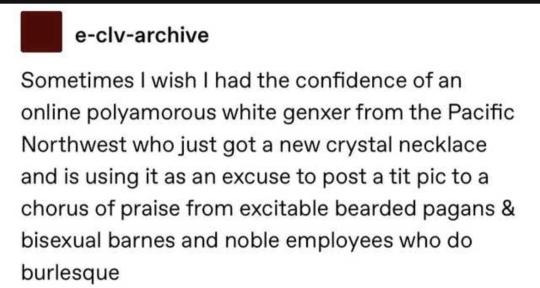
went to salem and couldnt stop thinking abt this the whole time
12K notes
·
View notes
Photo

~ Featuring Yellows ~
6K notes
·
View notes
Text

grian just hatched ...
#sorry everyone. idk why i drew this#hes a fucked up baby bird.#thats all#my art#grian#new Thing just hatched ugliest beast in history......#his white feathers will turn parrot colors eventually… but currently he’s baby#he just has his undercoat#I feel like I should content warn for this but idk what it even violates#cw ugly baby bird#cw nakey (just born)#cw deeply unpleasant to look at
701 notes
·
View notes
Text
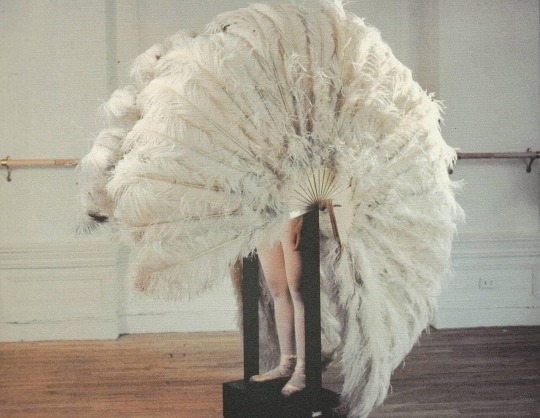
Rebecca Horn: The Feathered Prison Fan (1978)
1K notes
·
View notes
Text




🖤🕊️🤍
#stimboard#moodboard#stim#visual stim#body stim#plague doctor#plague doctor mask#mask#birds#feathers#fashion#romantic#black#white#irl people#romance
497 notes
·
View notes
Text

doodle because i was thinking about how dumb he'd look
#dungeon meshi spoilers#dungeon meshi#laios touden#my art#also because i see people draw his neck feathers white and stuff#which is probably not what they'd look like#NO clue what his face will actually look like though#probably more monster-y but i didn't know what.... sigh....
806 notes
·
View notes
Text
Prompt 245
Now Danny would openly admit, if only to himself, that he had a type when it came to relationships. If they were strong, if they were a threat to him, then chances were he would develop some sort of crush. It was how he had dated Sam and Valerie (And Johnny & Kitty) when he was a bit younger, and hell, Sam had technically succeeded in killing him, even if partly.
Attraction towards smart people who could kill him was honestly par for the course for a Fenton or Nightingale anyway.
And he’d also admit he enjoyed a bit of time travel, learning about times and culture long before his time, to the point that he could blend in in ancient times just as easily as the time he had been born in. That it was natural to mutter in a language lost to time.
So color him surprise when another man perks up in the bar he had paused to get a drink in, vibrant green eyes gleaming in interest and responds in turn. And not just in the language, but able to keep up when he talks about things that once existed but haven’t been rediscovered yet.
And one thing led to the other, and there might have been some assassins and some shenanigans that end with them both laughing together in an inn and then more and- Okay he has a type alright, and he’s ticking each box! How is that fair?
#DCxDP#DPxDC#Prompts#Adult Danny#Ras is just as smitten and so sad whenever Danyal leaves#But Danny always returns & he’s explained he has to travel lest he go mad#Danny isn’t technically from the DC dimension but it’s his favorite & it has nothing to do with Ras#Is their relationship healthy? Definitely not but they’re morally grey immortals#Dusan asks about his mother first#Technically Danny isn’t his mother BUT he does take on parental role & as far as the kids are aware this death-being is their mom#Why look Dusan even has his hair- their logic is flawless#Talia tells Bruce her mother is gone & for YEARS he thought she meant dead#Ellie got her wanderlust from Danny & they all give off some sort of mystical fae vibes#deadly decisions#Space Core Danny#Moon Core Ellie#Sun Core Dan#Liminal Al Ghuls#Danny is Not ghost King#Technically he’s some sort of being of rebirth like some sort of cosmic phoenix#Am I saying long-haired Danny with feathers in his braid that shimmers from white to galaxy? Maybe#Batfam had no clue about Danny save for Jason#And they didn’t find out until Damian mentions Grandmother apparently visited once more#Let Jason & Damian be brothers#How many tags until tumblr deletes them I wonder
1K notes
·
View notes
Text

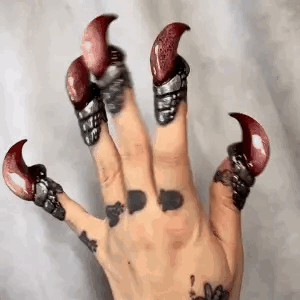
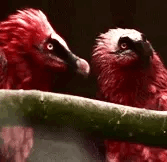
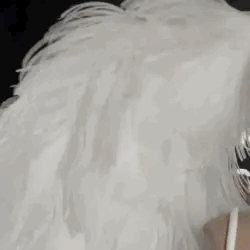
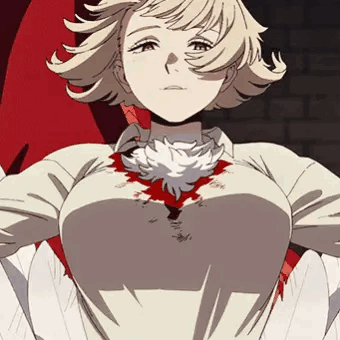
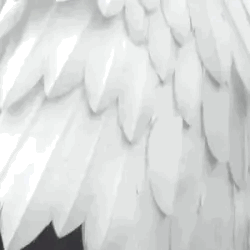
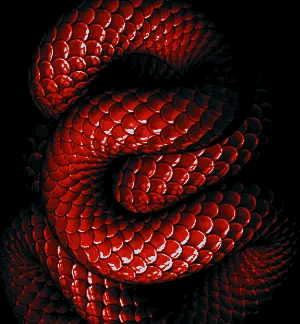
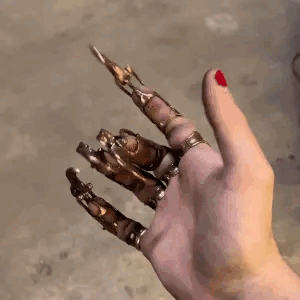


ᯓ★ ┊ chimera falin ( dunmes ) with a red & white color scheme, dragon/bird themes and feathers for @benzijay !!
1 , 2 , 3 ┊ 4 , 5 , 6 ┊ 7 , 8 , 9
#claws#red#white#feathers#wings#falin touden#chimera falin#dungeon meshi#scales#bird stim#bird of prey#request#stimboard#stim#stim blog#stim account#stimblr#stims#gif#stim gif#stimmy#visual stim#cw snake#chicken lesbian……#wing stim#claw stim#delicious in dungeon
410 notes
·
View notes
Text
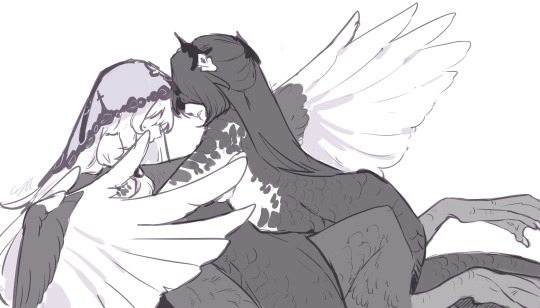
that acheron and black swan video has lots of potential for harpy and naga content yet I doubt anyone has realized it yet
#yeah uh. black swans have white flight feathers#honkai star rail#black swan#acheron#harpy#naga#too lazy to draw their clothes lmao
590 notes
·
View notes
Text

Little fluffs need care
#stp family au#slay the princess au#slay the princess#the princess stp#stp princess#stp the long quiet#the long quiet#and their children#little floofs#some have white feathers like their mother's hair bc i said so#*refuses to elaborate*
340 notes
·
View notes
Photo

~ Black | White | Blue ~
1K notes
·
View notes
Photo



a two for one (maybe three for one??)i assume these guys are related because this very unique headshape is consistent between them
very special little gems
(source)
466 notes
·
View notes
Text

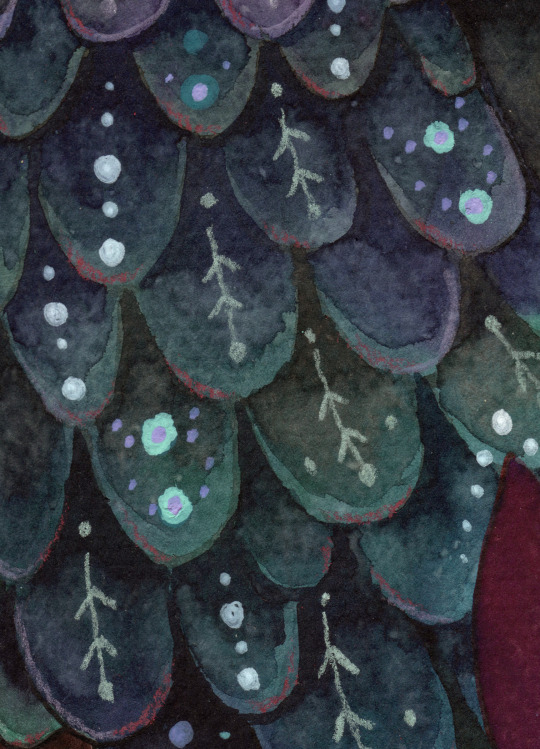

🪶 Harpy 🌙
New version of this character from like, 10 years ago. It was nice to paint this, esp after my 2 months long mermay run and after all of the lop fanarts.
Commissions open
Ko-fi - Inprnt - Patreon
#myart#traditional art#monster girl#harpy#anilinky#feathers#wings#illustration#art#crescent moon#purple teal gradient#watercolor#white gel pen#watercolor pencils#deleter ink#canson watercolor paper#i actually really like this one#maybe i should paint more wings
291 notes
·
View notes
Text

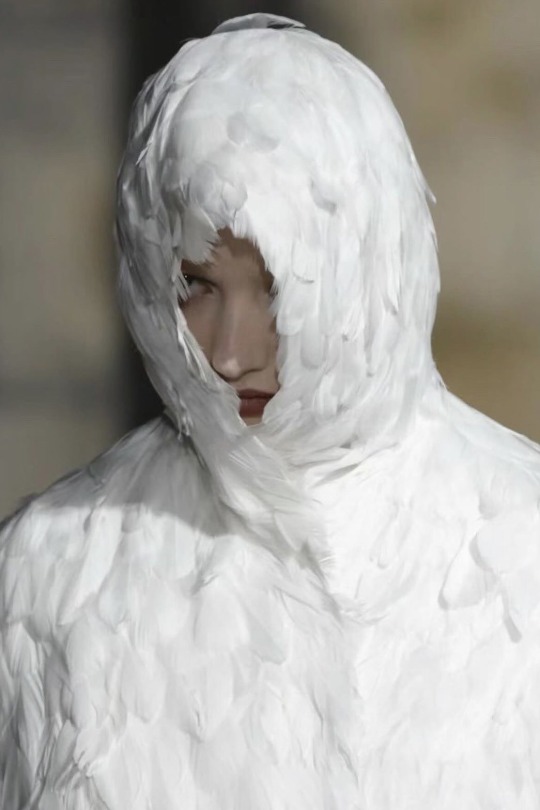
Luchen autumn/winter 2024
712 notes
·
View notes
Text
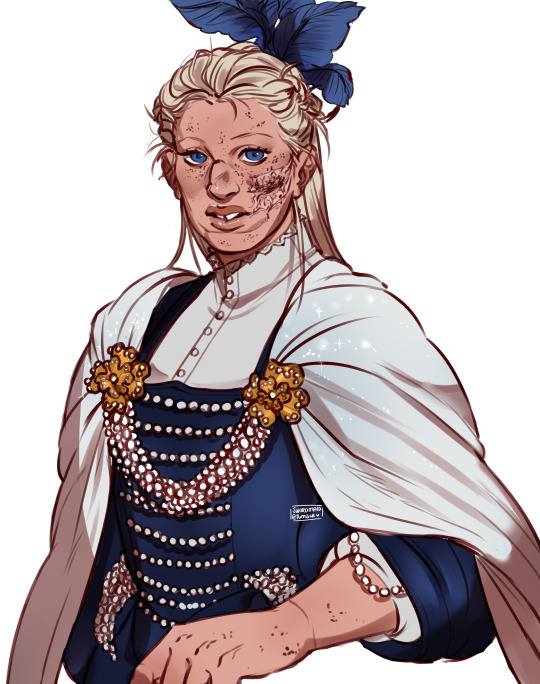
brienne but she's wearing 1949 cocteau's beauty and the beast inspired fit!!! this is the inspo pic i used if ur curious.
gonna be posting more of this redesign thing (and also jaime's ver) some time in the future but i just wanted to share this one <3
#brienne of tarth#asoiaf#mine.#u know literally just as i finished colouring this i found that some theater made an opera version of this batb#and they made belle's dress BLUE...which is a win for me and also not bc they made it light blue#but here it's supposed to be velvet.. idk if it comes across as velvet but that's the fabric of choice lol.#but im gonna ramble because i really like the concept... i love brienne in pearls!! i feel like pearls will be her jewellery of choice#and i talked abt this before in some post but i think tarth regalia would have a lot of pearls just bc they're an island#and i think they would export pearls alongside marble lol#i love brienne in silver and pearls BUT the reason why the flower thing on her cape is gold bc in the film#the pearl chain was actually a gift from the beast. so she's wearing jaime's gift. and i made the cape more silvery white (leaning on white#to resemble his cloak so it's like... jaime gifting her his white cloak..... hihihIHIHIhhihihihihi......#tbh i drew that concept before too BUT I JUST LIKE IT!!!!!!!! i want it to happen actually....please....thank u..#also the feathers in her hair is bc i want to accessorize her in a brienne way BUT ALSO supposed to be like the plumes knights wore in thei#helm. she's wearing trousers in the fit btw only the upper half of the design is based on beauty but the silhouette mimics beasts' more.#but anyway i really like this design!! bc it's a bit ott but also not in a way that seems out of character for her? idk LOL
1K notes
·
View notes